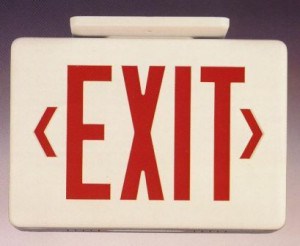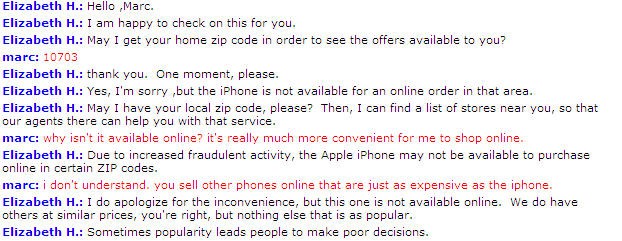Dissatisfied With Sprint? 30-Day Window to Get Out With No Cancellation Penalty Expires January 31st

 Customers unhappy with Sprint’s mobile service need not wait until the end of their contract term to switch providers without incurring an expensive early termination fee. Sprint has changed its pricing for their monthly regulatory fees from $.20 to $.40 per month. Although it sounds all-official-sounding, in fact it’s nothing more than pure profit padding. It’s a “junk fee” thrown on to customer bills ostensibly to pay for the company’s costs of complying with legal regulations. In fact, a lot of it probably ends up paying for their lobbyists.
Customers unhappy with Sprint’s mobile service need not wait until the end of their contract term to switch providers without incurring an expensive early termination fee. Sprint has changed its pricing for their monthly regulatory fees from $.20 to $.40 per month. Although it sounds all-official-sounding, in fact it’s nothing more than pure profit padding. It’s a “junk fee” thrown on to customer bills ostensibly to pay for the company’s costs of complying with legal regulations. In fact, a lot of it probably ends up paying for their lobbyists.
No matter, because you can use this pesky fee to your advantage if you were thinking of switching providers. Your contract with Sprint includes a clause pertaining to a “materially adverse changes” to your contract with Sprint, and paying even more for your Sprint service sounds mighty adverse to me.
This means you get to break your contract, leave, and pay them zero in cancellation fees on the way out the door. If you are happy with Sprint service and want to stay, you can also use the extra charge to extract free add-ons, like a free texting plan or other calling feature. Maybe you want a new and better phone now at a substantial discount instead of waiting until the end of your contract. Or maybe you just want to refuse paying this junk fee. All things are possible during your 30-day window of opportunity to your favor, depending on the representative you reach and their authority to act on your behalf.
The Consumerist has some great pointers to prepare you for the call or online chat you are about to have with Sprint. Be prepared for some varying degrees of push back from the company representatives, many who will be under-informed about your right not to pay junk fees and get out of your contract without penalties:
- When you call, they will ask you why you are canceling and try to get you to say you are unhappy with some other aspect of the service. You need to stick fast to your guns and insist, no matter what, that the only reason you are canceling is because you are rejecting this materially adverse change in contract terms and conditions.
- Not looking forward to playing head-games over the phone? Some readers have had better luck using online chat. “They just copy-and-paste a few canned pleas for you to stay, and all you have to do is type no thanks,” says commenter ohenry. “Plus then you can save your chat.”
- Yes, you can keep your phone number and port it to another provider.
- Yes, you may be able to use this to switch to a month to month plan.
- You only have January 31, 2010 to cancel.
The Consumerist site has a comments section with the experiences of those looking for the exit.


 Subscribe
Subscribe








